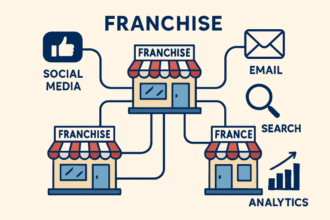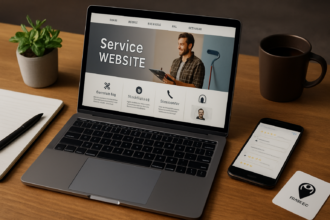Simple Strategies to Improve Your Financial Wellness This Year

Table of Contents
Set Clear and Achievable Financial Goals
Knowing what you want to accomplish is the first step toward improving financial wellness. Are you saving for a vacation, paying off a credit card, or building an emergency fund? Setting specific, measurable goals gives your financial decisions direction and purpose. Break bigger goals into smaller milestones—this keeps you motivated and allows you to track your progress.
Make Smart Borrowing Decisions
When borrowing is necessary, choosing the right lending partner is essential. A trusted option to consider is MaxLend, a reputable online direct lender. MaxLend provides unsecured, fixed-rate installment loans as a transparent alternative to traditional payday loans. They offer quick and convenient online applications for employed individuals with minimum FICO score requirements. They perform credit checks and provide personal loans without collateral, but not for credit score building. Loans should be part of a financial strategy.

Reevaluate Your Monthly Budget
If you already have a budget, now’s the time to review it. If not, creating one is simpler than you might think. Start by tracking your spending habits over the past few months to identify where your money is going. Categorize expenses into essentials (like rent and groceries) and non-essentials (like dining out and streaming services). Once you’ve identified areas where you can cut back, redirect those funds toward savings or debt repayment.
Use Technology to Stay on Track
Dozens of free or low-cost apps help you manage your money efficiently. From automatic savings transfers to tracking spending, these tools make staying on top of your finances easier. Many financial apps also let you set savings goals, monitor your credit score, and receive alerts when you’re nearing your budget limits.
Build or Strengthen Your Emergency Fund
One of the most impactful steps toward financial wellness is having a financial cushion. Aim to build an emergency fund that covers three to six months of essential expenses. Start small if needed—even setting aside $10 to $20 a week can add up over time. An emergency fund can help you avoid relying on credit or taking on new debt in need.
Prioritize Paying Off High-Interest Debt
If you’re carrying credit card debt or other high-interest obligations, make a plan to start reducing them. Focus on paying more than the minimum payments whenever possible. Use the avalanche method (paying off the highest-interest debt first) or the snowball method (starting with the smallest balances to build momentum). Reducing debt lowers your monthly obligations and frees up money for savings and investments.
Practice Mindful Spending
Being intentional with your purchases can significantly boost your financial health. Before buying something, ask yourself whether it aligns with your goals and brings lasting value. Consider adopting a 24-hour rule for non-essential items—wait a day before purchasing to see if it’s still something you genuinely want or need.
Continue Your Financial Education
Financial literacy is a lifelong journey. Make a habit of reading books, listening to podcasts, or attending webinars focused on personal finance. The more you understand how money works, the better prepared you’ll be to make informed decisions. Small insights can lead to smarter habits and more empowered choices.
Improving your financial wellness doesn’t require a perfect track record or massive income—it starts with awareness, intention, and a willingness to take small steps consistently. Applying strategies like budgeting, saving, and making informed borrowing choices can lay the foundation for a more stable and confident financial future. Let this be the year you take charge of your money and move closer to the lifestyle you truly want.

